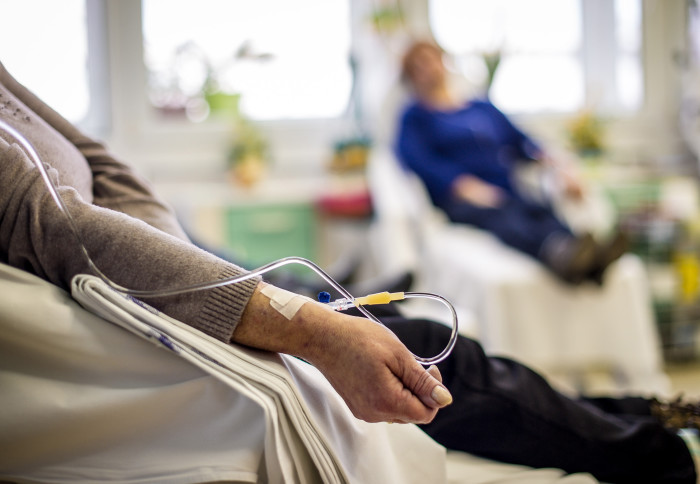Cancer patients at increased risk of severe outcomes from COVID-19
by Maxine Myers

Patients with cancer have a much higher risk of severe outcomes and death from COVID-19 than non-cancer patients.
In an analysis of 15 research studies involving more than 3,000 patients around the world, researchers found that cancer patients who contracted COVID-19 had a 23 per cent risk of mortality compared to non-cancer patients with COVID 19 who in the study had a less than six percent risk.
In lung cancer and blood cancer patients with COVID-19 the risk of mortality increased by 30 per cent. The researchers also found that patients older than 65 years and male were at a higher risk of worse outcomes, showing that age and gender are important predictors associated with poorer prognosis although interestingly diabetes and other established risk factors such as cardiovascular disease were not risk factors.
Global analysis
The research, published in the Journal of the National Cancer Institute, was led by researchers at Imperial College London and is the largest global analysis of cancer patients with COVID-19.
Our study is the first to analyse such a large cohort of cancer patients with COVID-19 and it shows that these patients are at increased risk of severe outcomes and death. Professor Justin Stebbing Professor of Cancer Medicine at Imperial College London
Professor Justin Stebbing, Professor of Cancer Medicine at Imperial College London, said:
“The rapid spread of COVID-19 has had a detrimental effect on cancer patients around the world. Our study is the first to analyse such a large cohort of cancer patients with COVID-19 and it shows that these patients are at increased risk of severe outcomes and death. We also found that age, gender and co-existing comorbidities appear to be significant risk factors associated with poorer prognosis. There is an urgent need to effectively monitor and treat this patient population and our findings can help guide clinicians on best practice in order to achieve this so we can mitigate the impact of the COVID-19 pandemic on cancer patients and reduce the risk of death. Based on this evidence, these patients should also be prioritised for COVID-19 vaccines.”
Increased risk
Evidence from individual reports suggests that cancer patients infected with COVID-19 may be at an increased risk of hospitalisation, admission to the intensive care unit, or requiring invasive ventilation, or death. Different cancers, and treatments used to fight them such as chemotherapy, can weaken the body and suppress the immune system.
The team analysed 15 studies involving 3019 cancer patients that reported case fatality or severe events of cancer patients with COVID-19 and compared it to studies that recorded the fatality rate of COVID-19 patients without cancer. Fifty-four per cent (1628) were men and 46 per cent (1388) were women; more than half were over 65 years old. They found that overall case fatality rate was estimated at 22.4 per cent in COVID-19 patients with cancer compared to COVID-19 patients without cancer at 5.9 per cent. They also found that age and gender appear to be significant risk factors associated with poorer prognosis consistent with other studies.
In patients treated with chemotherapy, surgery or immunotherapy, the case fatality rate was 25.6 per cent, 27.6 per cent and 24.3 per cent. However, the researchers believe that more evaluation is needed to establish whether or not these treatments contributed to the fatality rate but it doesn’t look like any individual treatment including chemotherapy contributes to the risk here. In addition, wherever patients were in the world, USA, Europe or Asia, the findings were similar. They recommend that patients to continue their treatments during the pandemic
The overall case fatality rate in the lung cancer patients with COVID-19 was 32.9 per cent, higher than that of other cancers but hematologic malignancies such as myeloma were also are above 30 per cent. This suggests that lung and blood cancer patients with COVID-19 may experience increased difficulty recovering from this disease once it has progressed to a severe stage.
The team now plan to carry out further analysis on the impact of cancer treatments on outcomes from COVID-19.
Article text (excluding photos or graphics) © Imperial College London.
Photos and graphics subject to third party copyright used with permission or © Imperial College London.
Reporter
Maxine Myers
Communications Division